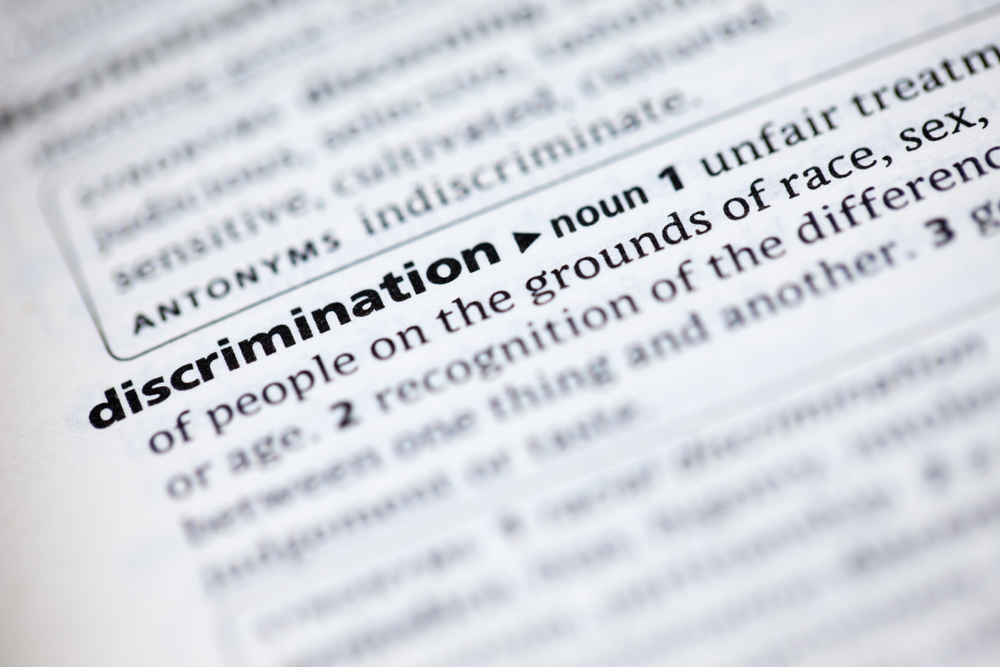How the new Privacy Guidelines interlink with our rights and how many landlords discriminate without realising they are doing so.
We often are confronted with landlords who want to have a say in what type of tenant they want in their rental
property. Fair enough. As it becomes harder to remove bad behaving and antisocial tenants, landlords rightfully want to ensure that their rental property does not become the latest ‘gang hood’ or ‘party central’. Selecting the right tenant is one of the most important aspects of property investment and property management. Get the selection right, and you will have a trouble-free tenancy with a proactive relationship with your tenant. Get it wrong, and it could lead to a world of pain that can hurt you financially as well as ruin relationships and add significant stress to your life.

However, when choosing a tenant, many of us will be unlawfully discriminating without even realising that we are doing so. Unfortunately, you will also still get a very small proportion of landlords who knowingly discriminate based on things such as race, nationality or ethnicity. At Tommy’s, we simply will not tolerate such behaviour. But many landlords will put in requests such as, “I want a family” or “I want a working couple in my property”. You may feel this sounds innocent enough. It’s my investment, I should get to choose who goes in there.
Where it gets complex is that by doing this, you are actually entering the territory of unlawful discrimination.
Section 12 of the Residential Tenancies Act covers such an offence. This section states the following. “A landlord shall not, in respect of the grant, continuance, extension, variation, termination, or renewal of a tenancy
agreement,—
(a) instruct a person to discriminate against another person in contravention of the Human Rights Act 1993; or
(b) state an intention (whether by advertisement or otherwise) to discriminate against any person in contravention of that Act.”
To breach this section and commit an unlawful act, you could be facing exemplary damages of up to $6,500. As we come into our busiest time of the year, many tenants searching for a property in a very tight rental market may feel as though they are being discriminated against in their futile search for a rental property.

So we pose the question, what is discrimination?
Section 21 of the Human Rights Act covers the thirteen grounds of discrimination. They are as follows:
- Sex
- Marital status
- Religious and ethical beliefs
- Colour and race
- Nationality
- Disability
- Age
- Political opinion
- Employment status
- Sexual orientation
Probably the two most contentious issues that we deal with are with regards to age of the applicant and their
employment status. This is where it is easy to stereotype and unwittingly discriminate without even realising we are doing so. If I was living in a quiet cul-de-sac with families around me I would be annoyed if a neighbouring property was rented to a group of young adults who wanted to do nothing else but party every weekend; a family is less likely to cause such issues. What may appear to be an innocuous request such as ‘no young students’ could actually be seen as unlawful discrimination based on age and employment status.
This does not mean that we cannot listen to our landlords when they come to us with a request. We simply have to educate them on their legal rights and responsibilities. A property manager or landlord should have the right to choose the best applicant for the property. Plus, there is no point putting a tenant into a property if they simply cannot afford the rent.

The new guidelines published by the Privacy Commission for landlords and property managers state that you cannot ask for any details when a tenant applies for a property in regards to personal characteristics based on the Human Rights Act. The guidelines also state the following, “Unsuccessful applicants for a tenancy can ask for any information you hold about them, including information that influenced your decision not to offer them the tenancy. If you’re asked for information that influenced your decision, you should provide copies of all the information you collected for the purpose of deciding on the application, such as:
the person’s completed application form and any supporting documents a credit report on the person if one was obtained any information you collected from public sources”
To conclude, just be aware that what may appear to be an innocuous and innocent request may lead to
discrimination issues.